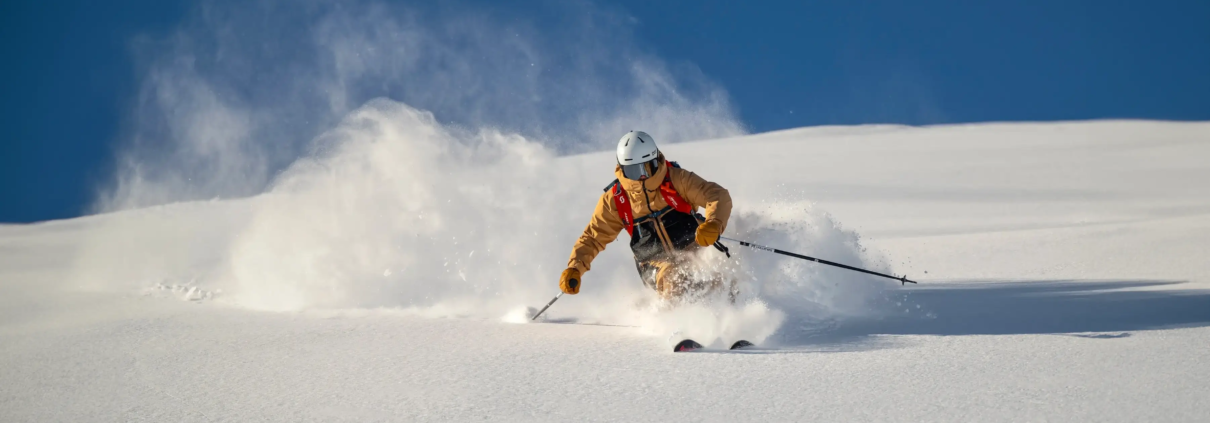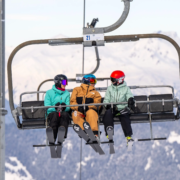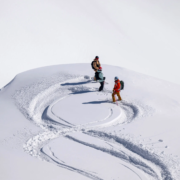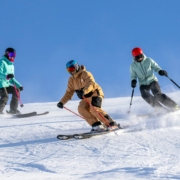Ski Holiday Packing List
Packing for a ski trip, especially for your first time, can be exciting but overwhelming. No worries, we’ve got our simple, easy-to-follow list:
Travel Essentials
- Passport
- Flight/train/ferry/coach/transfer tickets and details
- Holiday/accommodation/ski hire details
- Insurance details
- Mobile phone, charger and adapter
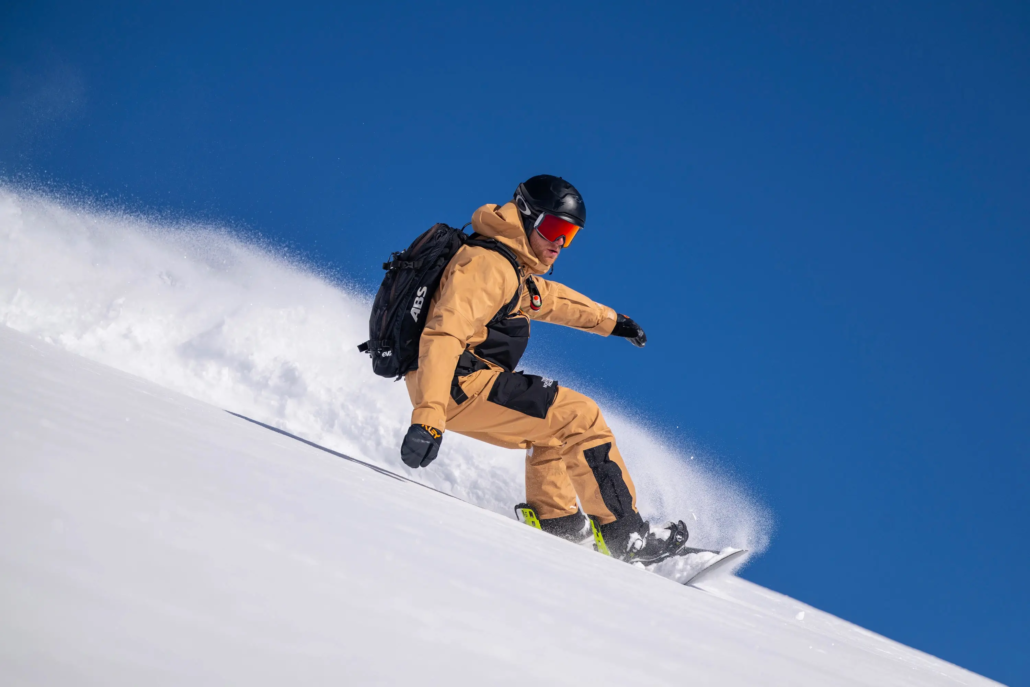
Ski and Snowboard Equipment
- Skis or Snowboard in a ski bag: Unless you’re renting.
- Ski Boots: Unless you’re renting. Want to buy your own? We recommend Ellis Brigham.
- Ski Poles: Important for skiers. Unless you’re renting.
- Helmet: No compromises on safety.
- Goggles: Anti-fog and UV protection. Goggles also keep your face warm on colder days and protect you from the sun.
- Backpack: Small one for snacks, water, another layer of clothing or heading off-piste.
- Transceiver, shovel and probe: If heading off-piste
- Soft Water bottle: Hydration is critical. Avoid camelbacks, as even the insulated tubes often freeze. A collapsible bottle gets smaller as you drink, meaning less bulk in your pockets.
- Multitool: for repairs or adjustments on the go (if going off-piste)
- Ski Lock: You will be happy having your skis locked up while having lunch on the mountain. Unfortunately, theft on the mountain does happen, so better safe than sorry.
Pros and Cons of Ski Hire
If you’re renting your ski gear, you can skip the skis, boots and poles – but remember one other essential piece of equipment: your helmet! If you forget, it is possible to rent one, but most people prefer to bring their own. You can buy your helmet from Ellis Brigham, and we recommend brands like Smith, Anon, POC and Sweet Protection. We’ve linked some of our favourite ski helmets here.
Ski hire can be organised before your trip, meaning less faff when arriving at the resort. We know that ski trips can be expensive, so check out our ski hire discount code for your holidays in France, Switzerland and Austria.
Nowadays, ski rental shops have brand-new equipment each year, so you can choose from a wide selection of skis and boots to find the perfect gear for your foot shape and ski style.
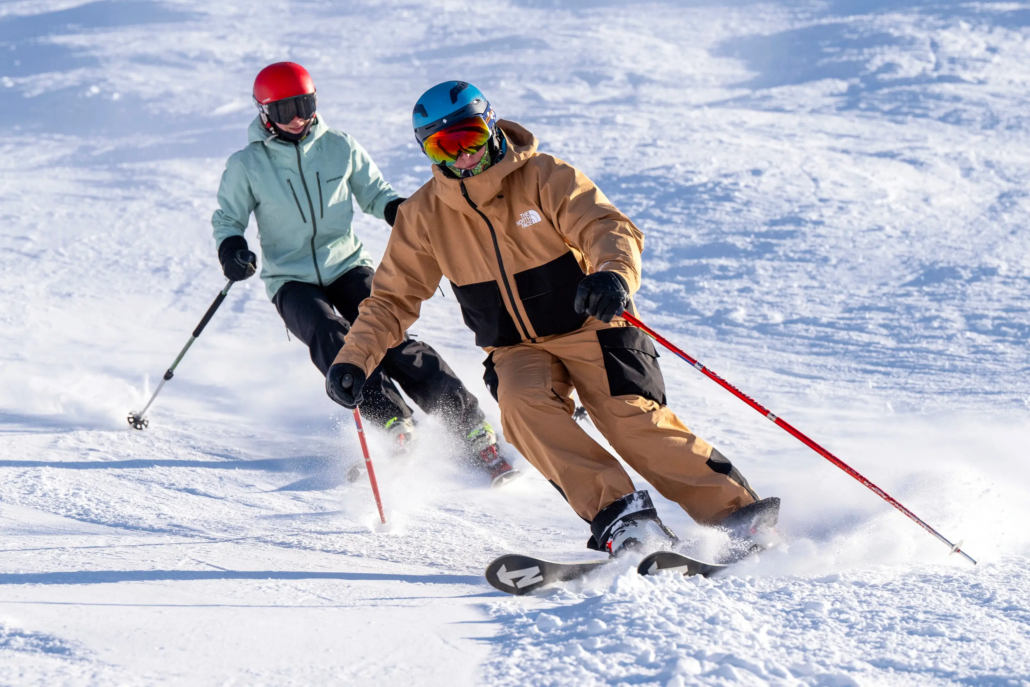
Correctly Fitting Ski Boots
One downside to renting is that the ski boots might not fit you as well as your own custom-fit pair would. But overall, renting ski gear is a fantastic option, especially if you’re new to skiing. If your boots are causing you discomfort, go back to the rental shop and ask for another pair. You won’t be charged for this service. Ski boots aren’t the most comfortable thing to wear, but they should never cause you pain.
Clothing must-haves:
-
- Thermal Base Layer Tops: Close-fitting, long-sleeved base layers are best. A quality base layer wicks away excess moisture and helps to regulate your temperature in the mountains.
- Thermal Base Layer Bottoms: 3/4 length leggings, not full length, as they will overlap your socks. Only have your ski socks inside your ski boot for better comfort. Choose Merino thermals as they’re breathable and made from non-smelly natural fibres that trap and break down bacteria – so you won’t be too smelly at Après ski.
- Ski Socks: Wool or synthetic socks are best, and bring more than one pair! Wool or bamboo is an excellent material for air wicking. Opt for one pair of thin socks, NOT thick ski socks. Our favourite ski sock brands have to be Smartwool, Stance or Falke.
- Mid-Layers: Think fleece or light down jackets. Patagonia does some fantastic fleeces, which are warm but not too bulky. And they can be worn day to day in the cooler months back at home, so although they’re pricey, they will become a staple in your winter wardrobe. Down jackets are brilliant for layering between your thermals and waterproof ski jacket. These can also be used back home in winter to keep you toasty.
- Ski Jacket: Waterproof, insulated and durable. We’ve been wearing The North Face for nearly 20 years, and it’s still the best around.
- Ski Pants: Again, they need to be waterproof and not too tight (you need to be able to move.)
- Gloves or Mittens: Insulated and waterproof. If your hands are prone to getting cold, get some high-quality ones. The last thing you want is cold fingers all day on the mountain.
- Beanie or hat: Warm ears, happy life. A thin one that fits nicely under your helmet is best but isn’t a requirement whilst skiing. However, it can be handy for lunch or a drink on a sunny terrace (in helping to tame that helmet hair.)
- Sunglasses: You might not ski in your sunnies, but they’ll be nice to put on when you stop for a break. The sun is intense in the mountains, and you must protect your eyes.
- Neck warmer / buff – Choose a thin cotton buff that will dry quickly.
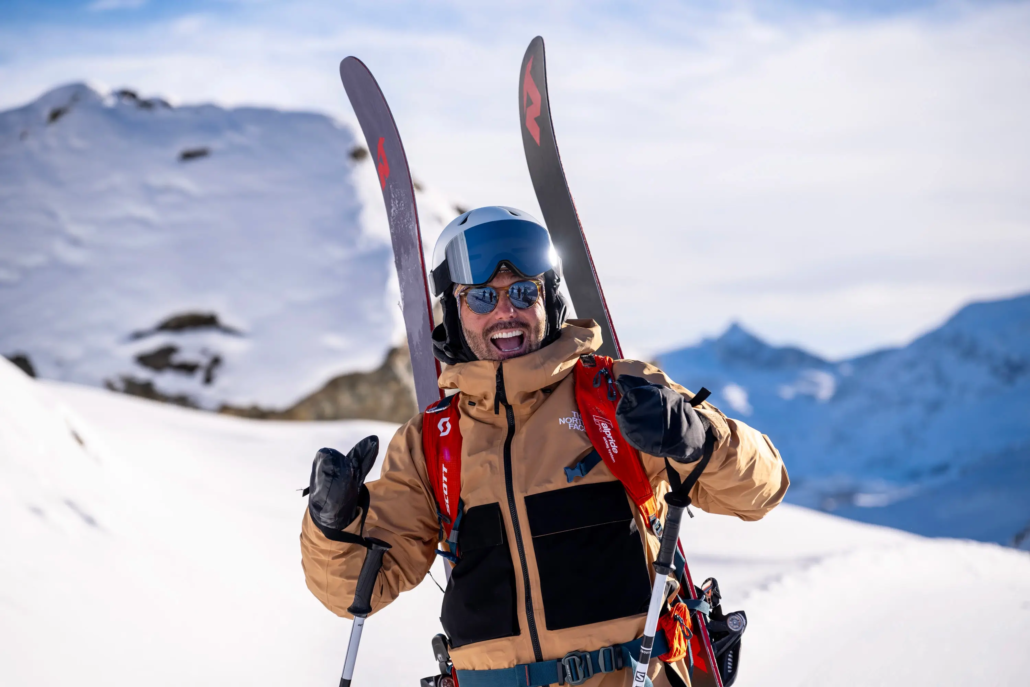
Most accommodation in the Alps will have drying rooms or boot heaters, so you must hang up your gear overnight, giving it the best chance to dry out thoroughly. You’ll then be dry, warm and ready for another day
Ellis Brigham has a great selection of ski clothing.
Other Clothes:
You’ll need some ‘regular’ clothes for evening dinners and nights in the bar (if that’s your cuppa tea), so don’t forget a few essentials.
- Jeans or long trousers
- T-shirts and tops
- Jumpers or fleece
- Pyjamas and underwear, including socks
- Comfy trousers/jogging bottoms: ideal for travelling and lounging around the chalet
- Slippers: perfect for hopping across the terrace to the hot tub
- Thin gloves: Go for a pair that allows you to use your phone through the index finger.
- Shoes/ snow boots with grip: Leave the trendy boots at home. You’ll need proper snow boots with a good sole.
- Sports bra (if necessary): Way more comfy – thank us later
- Swimming costume/trunks: Hot tubs and swimming facilities are everywhere in the Alps.
Layering is vital for your days out on the mountain. So keep that in mind when filling your suitcase. What’s the best way to layer? Find out in our guide on how to layer for skiing.
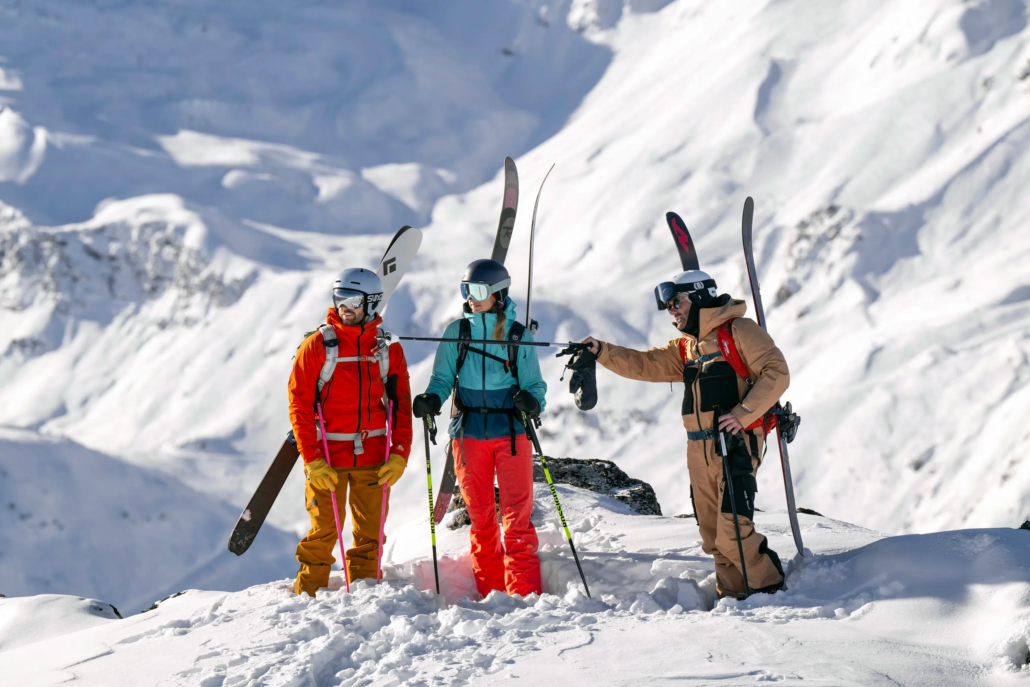
Other Stuff:
- Toiletries: including toothbrush
-
- Sunscreen: High altitude = stronger sun. High SPF needed.
- Lip Balm: Windy slopes dry you out.
- Aftersun/moisturiser: essential in the dry mountain air.
- Medication: including painkillers – much cheaper in the UK and handy to have in your bag.
- Tissues: Runny noses are inevitable. Stash a few in your pockets each day. Essential, especially with young kids.
- Hand Warmers: For those extra chilly days. Or invest in rechargeable heated gloves.
- Snacks: Think protein bars and nuts. It’s not just us who always have a cheeky little chocolate in our pocket – is it?
What to bring for fun and relaxation:
- Phone: Remember the charger.
- Camera and accessories: Capture those epic moments. If you’ve got a GoPro? Bring it, and remember a helmet mount.
- Power Bank: Just in case.
- Plug adapter: you can never have enough.
- Ski Pass: Keep it handy.
- Music: Create a playlist that gets you pumped.
- Books/Magazines: For downtime.
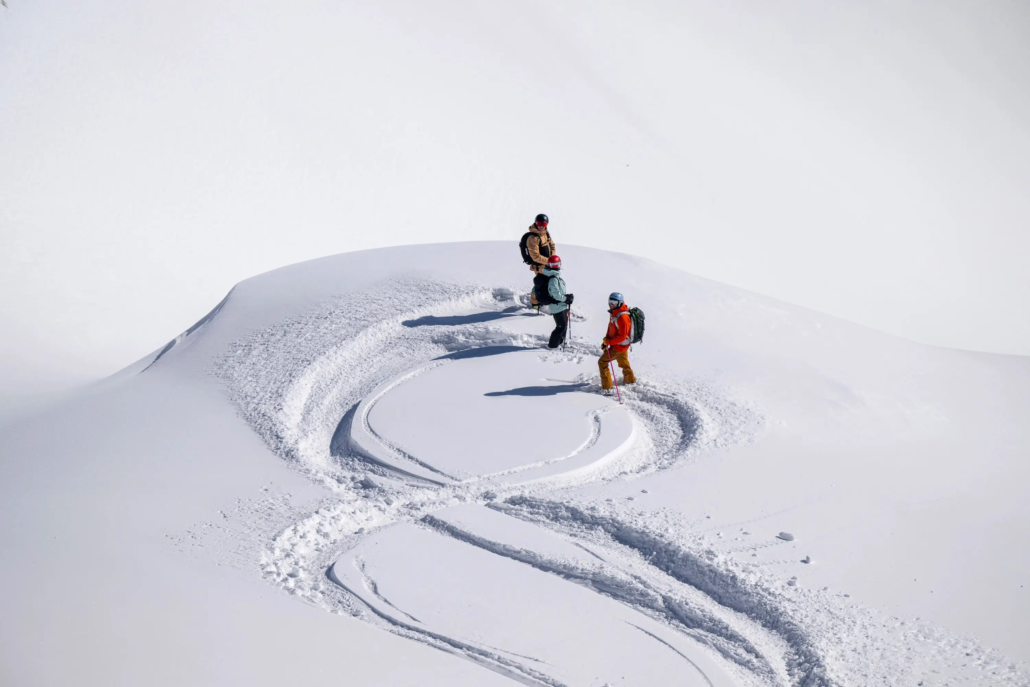
There you go – a simple checklist to ensure you’re ready to hit the slopes. Enjoy your trip.
If you need to book your ski lessons, don’t worry, there’s still plenty of time. Head to our website, book your ski lessons, use our ski hire discount code, and get ready to hit the slopes.

